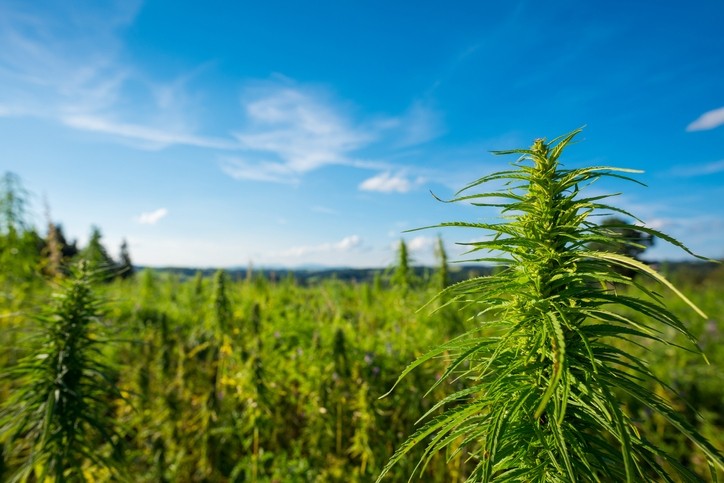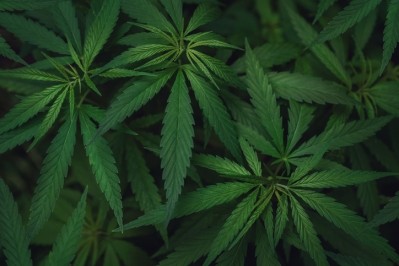Congress extends hemp pilot program

National Industrial Hemp Council Board Chairman Patrick Atagi said they’re grateful that the House and the Senate extended the program. Atagi added that the vote means “Hemp farmers across the country will have more certainty tomorrow while states continue their important work to submit final plans to the USDA for approval.”
Last week, the House passed the continuing resolution. It now heads to the President’s desk for signing.
Background
The 2014 Farm Bill created a pilot program for hemp to be grown in states with plans that received USDA approval.
Following the passage of the 2018 Farm Bill, hemp was removed from the Controlled Substances Act. With the pilot program slated to expire, states were given an October 31, 2020 deadline to submit final plans to the USDA for approval.
The pandemic factor
Given the challenges brought on by the COVID-19 pandemic, state departments of agriculture struggled to finalize plans and ultimately submit them to the USDA for approval.
“The hemp industry isn’t any different from other facets of our economy that have been adversely affected by COVID,” said Atagi. “We’ve continued to tell Congress that a global pandemic has made it increasingly difficult for states to meet and develop plans to be submitted to the USDA for approval before the expiration of the pilot program.”
In August, the NIHC joined the National Association of State Departments of Agriculture (NASDA) in writing to both House and Senate appropriators asking that the hemp pilot program be extended as part of any coronavirus relief package or as part of a continuing resolution. This week the Senate chose the latter option.
The NIHC and NASDA also asked USDA Secretary Sonny Perdue to extend the comment period attached to the hemp pilot program. In a surprising move, the USDA did in fact re-open the comment period on the hemp interim final rule.
Stakeholders weigh in
While Agricultural Marketing Service (AMS) received over 4,600 comments during the initial comment period, which closed in January 2020, it is now encouraging “additional input on several topics identified by commenters.” AMS said they are particularly interested in comments on the following topics:
- Measurement of Uncertainty for Sampling
- Liquid Chromatography Factor, 0.8777
- Disposal of Remediation of Non-Compliant Plants
- Negligence
- Interstate Commerce
- 15-Day Harvest Window
- Hemp Seedlings, Microgreens, and Clones
- Hemp Breeding and Research
- Sampling Methodology—Flower vs. Whole Plant
- Sampling Methodology—Homogenous Composition, Frequency, and Volume
- Sampling Agents
- DEA Laboratory Registration
“With USDA re-opening the comment period, hemp industry stakeholders have the chance to tell USDA directly why it should extend the hemp pilot program in wake of the challenges they face with their individual states not being able to submit plans for approval,” explained Atagi.
One such stakeholder is Preferred CBD co-founder Mike Haynes. He said there are two provisions in the proposed regulations that Preferred-CBD would like the USDA and Agricultural Marketing Service (AMS) to reconsider.
Testing bottlenecks
“First, Preferred-CBD is concerned with bringing the highest quality hemp-derived products to retail as quickly as possible. The proposed USDA requirement that all hemp be tested within 15 days of expected harvest by a ‘DEA registered’ laboratory will create a massive bottleneck in the hemp industry and will drastically slow seed-to-shelf time, therefore potentially reducing quality. We believe there is simply no way the current DEA registered labs would have the capacity to test the entire country’s hemp crop, which is all harvested within just weeks of each other,” explained Haynes. “Our recommendation would be a phased-in approach, and initially increase the 15-day period to 30 days, and lift the requirement to conduct tests through a DEA registered lab. These two requirements could be phased in over several years to allow the infrastructure to be built for testing prior to the requirements effective date.”
THC
Haynes said another concern is the proposed regulation that would limit total THC to 0.3%. “Under the current regulation, the THC limits do not give the CBD customer a psychoactive effect, as the THC concentration is too small. Therefore, reducing the current THC concentration limit is not needed.”
Haynes added that another disadvantage of the proposed THC regulation would restrict the varieties of hemp that farmers can choose from and will force farmers to grow varieties that are new to the market and potentially unstable. “We want to ensure that our CBD customers get the most effective product possible. By limiting the hemp-genetic pool with an arbitrary limit of total THC, we believe the regulations would stunt the growth and exploration of potentially medically beneficial hemp varieties.”
The comment period closes October 8, 2020. Parties interested in submitting their comments can do so here.
AMS said they still plan to issue a final rule on hemp production regulations by November 1, 2021. Meanwhile, the pathway for CBD remains less clear, as companies such as GNC reportedly meet with White House officials to discuss CBD regulation and advocate for its use in dietary supplements.









